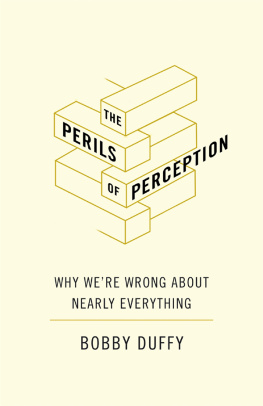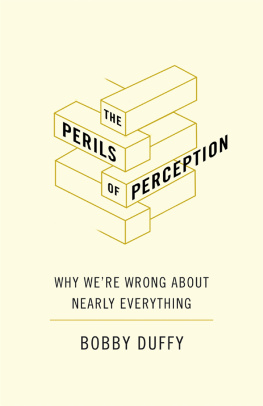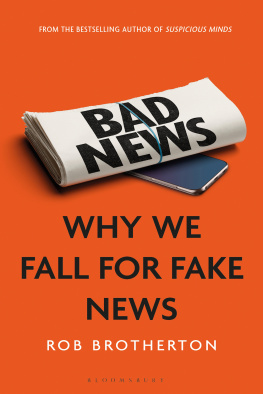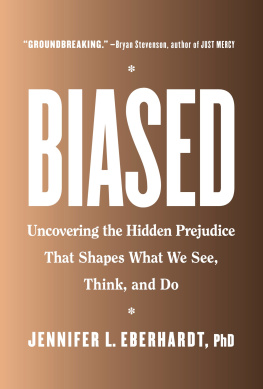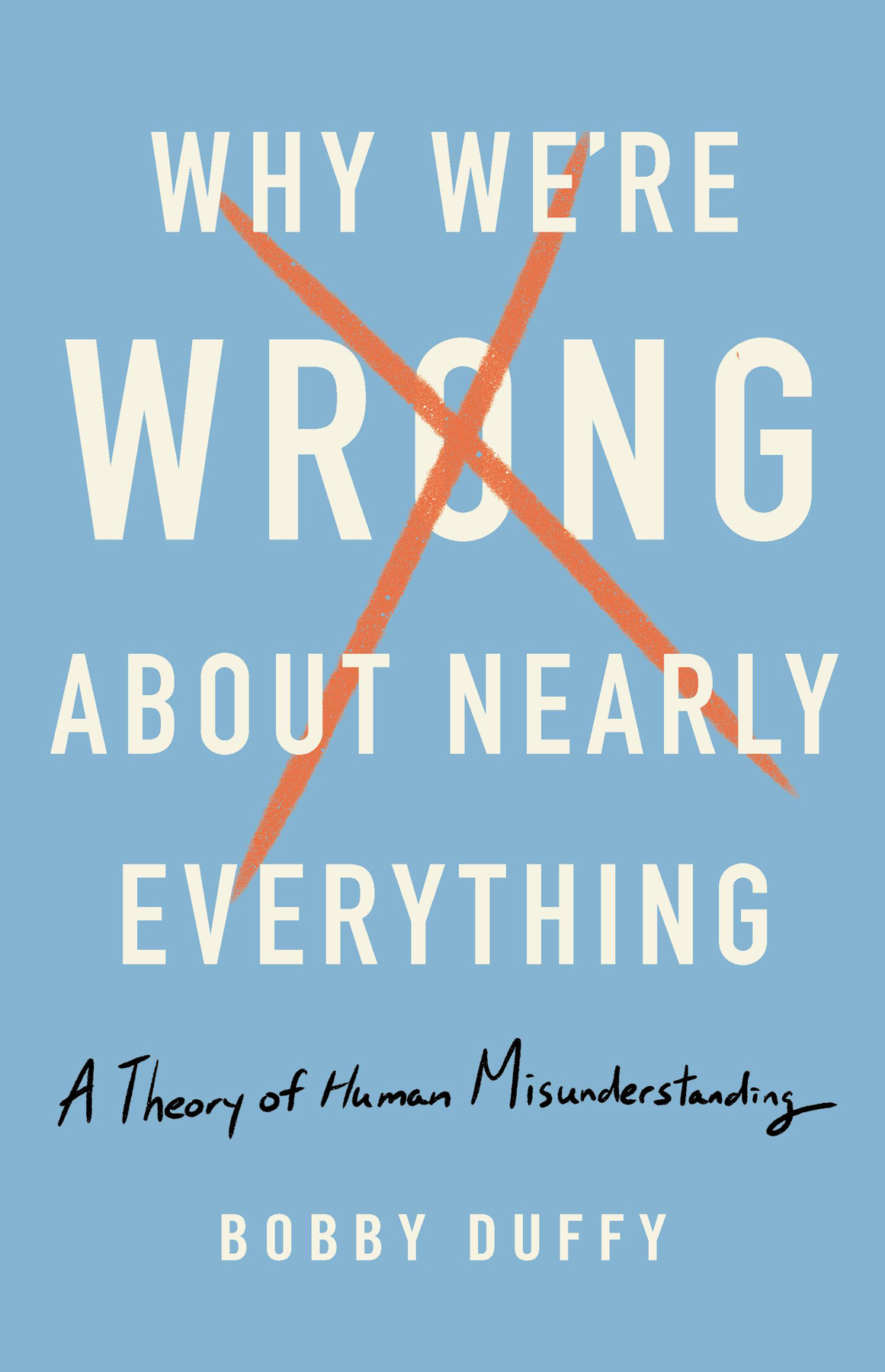Copyright 2019 by Bobby Duffy
Cover design by Kapo Ng
Cover copyright 2019 Hachette Book Group, Inc.
Hachette Book Group supports the right to free expression and the value of copyright. The purpose of copyright is to encourage writers and artists to produce the creative works that enrich our culture.
The scanning, uploading, and distribution of this book without permission is a theft of the authors intellectual property. If you would like permission to use material from the book (other than for review purposes), please contact permissions@hbgusa.com. Thank you for your support of the authors rights.
Basic Books
Hachette Book Group
1290 Avenue of the Americas, New York, NY 10104
www.basicbooks.com
First Edition: November 2019
Originally published in 2018 by Atlantic Books in Great Britain
Published by Basic Books, an imprint of Perseus Books, LLC, a subsidiary of Hachette Book Group, Inc. The Basic Books name and logo is a trademark of the Hachette Book Group.
The Hachette Speakers Bureau provides a wide range of authors for speaking events. To find out more, go to www.hachettespeakersbureau.com or call (866) 376-6591.
The publisher is not responsible for websites (or their content) that are not owned by the publisher.
All figure sources and data are available from www.perils.ipsos.com except the following:
Trends in birth rates per 1000 females aged 1519 by ethnicity in the US (): www.hhs.gov/ash/oah/adolescent-development/reproductive-health-and-teen-pregnancy/teen-pregnancy-and-childbearing/trends/index.html
Do you feel closer to a particular party than all other parties? (): European Social Survey 20022016
Key moves in public trust over time (): Ipsos MORI Veracity Index
The Library of Congress has cataloged the hardcover edition as follows:
Names: Duffy, Bobby, author.
Title: Why were wrong about nearly everything : a theory of human misunderstanding / Bobby Duffy.
Other titles: Perils of perception
Description: First US edition. | New York : Basic Books, 2019. | Originally published in 2018 by Atlantic Books in Great Britain. | Includes bibliographical references and index.
Identifiers: LCCN 2019018610 (print) | LCCN 2019021210 (ebook) | ISBN 9781541618091 (ebook) | ISBN 9781541618084 (hardcover)
Subjects: LCSH: Knowledge, Sociology of. | Ignorance (Theory of knowledge) | Perception. | Truthfulness and falsehood.
Classification: LCC HM651 (ebook) | LCC HM651 .D84 2019 (print) | DDC 306.4/2dc23
LC record available at https://lccn.loc.gov/2019018610
ISBNs: 978-1-5416-1808-4 (hardcover), 978-1-5416-1809-1 (ebook)
E3-20191019-JV-NF-ORI
I hated my psychology classes at college. As I remember them now, they were taught by a succession of super-smart, suave professors who all looked the same, closer to snake-hipped rock stars than fusty academics. They were all tall and slim, with haircuts that didnt play by professorial rules. They wore all-black clothes or, rarely, paisley shirts, and shoes that were just that bit too pointy. (I admit, jealousy may be clouding my own perceptions a little; in fact, I think Ive just described Russell Brand.) The students, of both genders, swoonedpartly because of the professors rebellious looks, partly because they seemed to know so much about how we thought. Theres nothing more attractive to most confused young adults than someone who really understands them.
But I had a problem with that. I hated the cognitive tricks that demonstrated we nearly all fall into the same mistaken ways of thinking. Theyd set us up with questions or experiments that were custom made to elicit a particular answer and show how typical our brains were. At that insecure but arrogant age, I wanted to be special and unpredictablebut my answers were just like everybody elses.
Take this example, from a professor at the University of Maryland:
You have the opportunity to earn some extra credit on your final grade. Select whether you want two points or six points added onto your final paper grade. But theres a small catch: if more than 10 per cent of the class selects six points, then no one gets any points, not even the people who chose two points.
Here is a very direct and teachable moment, a lesson in the tragedy of the commonswhere individuals try to obtain the greatest benefit from a particular resource, taking more than their equal or sustainable share, and therefore ruin it for everyone, including themselves. Of course, the class conformed to type, and failed. Around 20 per cent selected six points, so they all got nothing. In fact, only one class in one semester over the eight years the professor had been conducting his mildly cruel experiment had actually managed to get the extra points.
Given my lingering sensitivity to psychological tricks, its not without irony that a lot of my working life has been focused on running similar tests. I spent twenty years at opinion research firm Ipsos MORI, designing and dissecting research from around the world to help understand what people think and do, and why. Im now a (definitely not snake-hipped) professor at Kings College London, focusing on the same challenges of public delusion, and what they mean for public policy. Across these roles, Ive run hundreds of surveys on public misperceptionswhat we call the Perils of Perceptioninvestigating a range of social and political issues, from sexual behaviour to personal finance, across a large number of countries. We now have over 100,000 interviews, across forty countries on some questions, allowing us to weigh up our perceptions against reality. This is a unique and fascinating source of data on how we see the world, and why were often so wrong about it. Previous work has tended to focus on one issue or sphere of life, and few get beyond a handful of countries. You can dig into the full set of Ipsos studies at www.perils.ipsos.com
Across all the studies and in every country, people get a lot wrong on nearly every subject weve covered, including immigration levels, teen pregnancy, crime rates, obesity, trends in global poverty, and how many of us are on Facebook. But the key question is Why?
Lets start off with a question thats got very little to do with the sort of social and political realities well look at later, but helps to highlight why there might be this gap between perceptions and reality: Is the Great Wall of China visible from outer space? What do you think? If youre anything like the population in general, theres about a 5050 chance that you answered yes, as surveys show that half of people say they believe the Great Wall is visible from space. Theyre wrongits not.
At its widest, the Great Wall is only nine metres across, about the size of a small house. Its also built of rock that is similar in colour to the surrounding mountains, so it blends in with the landscape. When you take a bit of time to think about it, the idea that the Great Wall is visible from space is actually slightly ridiculous, but there are some very good reasons why you might have thought it is.


